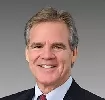On April 12, 2011, the Department of Health and Human Services (HHS) notified Forest Laboratories, Inc.'s CEO Howard Solomon that it intended to exclude him from participating in federal health care programs. HHS's action against Mr. Solomon follows Forest Pharmaceuticals' September 2010 guilty plea as discussed in this alert, but it is unusual because Mr. Solomon has not been accused of wrongdoing or of having personal knowledge in the underlying case. As such, HHS's action is the latest step in seeking to increase the accountability of corporate executives in these circumstances.
In September 2010, Forest pled guilty to obstruction of justice, distributing the unapproved new drug Levothroid, and misbranding the drug Celexa and promoting it off-label for pediatric depression. As part of the settlement, Forest paid $313 million in criminal and civil penalties and entered into a corporate integrity agreement with HHS.
Forest did not release the debarment notice from HHS, but indicated in a corporate press release that the only basis for the exclusion provided in the letter was that Mr. Solomon is "associated with" Forest. Under the permissive exclusion authority of Section 1128 of the Social Security Act, officers and managing employees may be excluded from federal health care programs based solely on their position with an entity convicted of an exclusion warranting crime. See Section 1128(b)(15)(A)(ii); 42 U.S.C. §1320a-7(b)(15)(A)(ii). Although this policy has been in place for several years, it has generally not been used as a basis for exclusion. Mr. Solomon now has 30 days from receipt of the letter to argue why he should not be excluded. If HHS is unpersuaded, his recourse is to avail himself of the Appeals of Exclusion process pursuant to 42 C.F.R. Part 1005 or, less common, file an action in federal court to enjoin HHS's action.
It is not unusual for corporate executives to be excluded where they are charged and convicted of personal wrongdoing. Last year, former KV Pharmaceutical Chairman Marc Hermelin was banned from participating in federal health care programs after KV's wholly owned subsidiary, Ethex Corp., pled guilty to the production and distribution of oversized morphine tablets. Mr. Hermelin later pled guilty himself. Similarly, three former Purdue Frederick Company executives also were barred from federal health care programs for 12 years after pleading guilty to criminal misdemeanors in connection with misbranding of OxyContin.
Mr. Solomon, however, has not been charged with or pled guilty to any crime, and if Forest's press release continues to be accurate as time progresses in the investigation, then this case exemplifies a new era in prosecutions against individuals who may be held accountable based solely on their position with the company.
HHS's action is akin to the SEC's use of Section 304 of the Sarbanes-Oxley Act to clawback compensation from CEOs and CFOs of companies that restate their financial statements, even if the executives have not been charged or accused of any personal wrongdoing. For example, in 2009, the SEC filed an action pursuant to Section 304 to clawback $4 million in bonuses and stock sale profits from Maynard Jenkins, the former CEO of CSK Auto, after the company was accused of accounting and securities fraud and even though Mr. Jenkins had no role in the alleged scheme. The SEC's position that it need not establish any personal misconduct by the CEO and CFO was upheld in SEC v. Jenkins, 718 F. Supp.2d 1070 (D. Ariz. 2010).
These cases underscore the continued need for robust compliance programs that enable top executives to unearth wrongdoing within the company and take appropriate action. Specifically, companies should continue to implement anonymous reporting mechanisms so that issues can be addressed in a timely manner inside the company. Companies and their executives need action plans for responding to reports and conducting internal investigations. Although the responsible corporate officer doctrine is a strict liability standard, the Guidance of Implementing Permissive Exclusion Authority under Section 1128(b)(15) of the Social Security Act, dated October 20, 2010, provides a number of factors the HHS Office of the Inspector General may consider at its discretion to determine whether to impose a permissive exclusion. Factors include, among others, the circumstances and seriousness of the offense, whether the misconduct was part of a pattern of wrongdoing, the individual's managerial control and authority, the relation of the individual's position to the underlying misconduct, the steps the individual took to mitigate the misconduct, whether the individual disclosed the misconduct, and whether the individual cooperated with the investigation. Accordingly, the more executives can demonstrate affirmative and concrete steps they personally take to deter misconduct, detect violations, address reports of misconduct, disclose any wrongdoing, and cooperate with any government investigation, the better argument they will have to avoid permissive exclusion based on their position within the company.
Finally, the proposed exclusion of Mr. Solomon demonstrates the need for company executives to understand the collateral exclusion implications when the company is negotiating with the government. Plea agreements, civil settlements, and corporate integrity agreements for the company do not necessarily protect company executives from exclusion.
The content of this article is intended to provide a general guide to the subject matter. Specialist advice should be sought about your specific circumstances.



